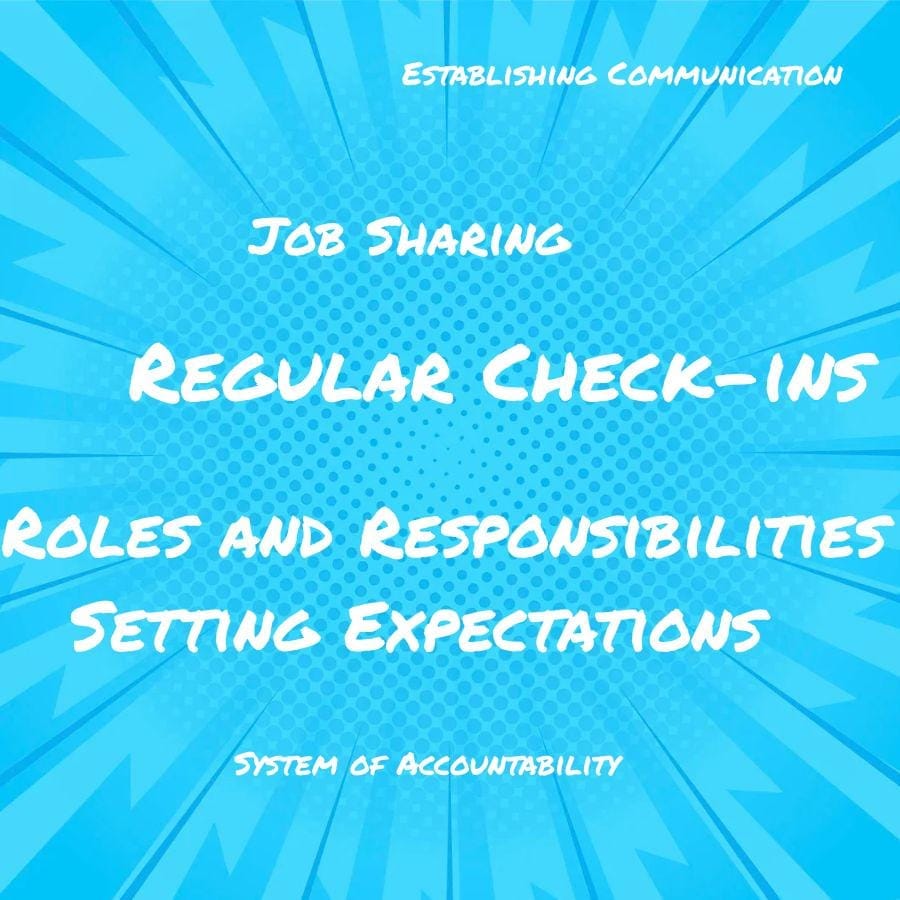Job sharing partners should establish clear roles and responsibilities by discussing their individual strengths, weaknesses, and preferences, setting expectations for communication frequency and methods, and creating a plan that outlines each partner’s tasks.
Job sharing is an increasingly popular way for employers to get the most out of their employees. By having two people share the responsibilities of one job, employers can benefit from increased productivity and reduced costs.
However, it can be difficult for job sharing partners to establish clear roles and responsibilities in order to ensure that the job is done properly and efficiently. In this blog post, we will discuss how job sharing partners can set up clear roles and responsibilities so that everyone involved knows their role in the process.
Defining Job Roles and Responsibilities

Defining job roles and responsibilities involves determining who will be responsible for what tasks, how those tasks will be divided between the two partners, and how they will collaborate on any shared duties. This process should include a discussion of each partner’s skills, strengths, weaknesses, interests, availability, and preferences.
It is important to create an agreement that outlines each partner’s specific role in the job sharing arrangement so that there are no misunderstandings or conflicts down the line. It is essential to set expectations for communication between partners so that both parties can stay informed about progress on their respective tasks.
Establishing Communication Protocols
Communication protocols are the rules and guidelines that partners use to communicate with each other. These protocols help ensure that both partners understand their roles and responsibilities, as well as how they will interact with each other.
This includes setting expectations for when and how often partners should communicate, what type of information should be shared, who is responsible for making decisions, and any other relevant details. By establishing clear communication protocols from the start, job sharing partners can avoid misunderstandings or conflicts down the line.
Setting Expectations for Workloads
Setting expectations for workloads is an important part of this process. This involves determining how much work each partner will be responsible for, as well as what tasks they will be expected to complete.
It also includes setting deadlines and agreeing on a timeline for completing the job. By establishing these expectations upfront, both partners can better understand their individual roles and responsibilities, which helps them stay organized and productive throughout the job-sharing process.
Creating a System of Accountability
This involves setting clear expectations and establishing a process for monitoring progress. Job sharing partners should create a plan that outlines the roles and responsibilities of each partner, as well as how they will be held accountable for meeting those obligations.
The plan should include specific goals, deadlines, and methods of communication between the two partners. It should outline any consequences if one or both parties fail to meet their commitments.
By creating this system of accountability, job sharing partners can ensure that both individuals are doing their part in order to achieve success in the shared role.
Scheduling Regular Check-ins With Each Other
This involves setting aside time to meet up or communicate virtually, so that both partners can discuss their progress on tasks, any issues they are facing, and how they can support each other in their work. Regular check-ins help ensure that both partners are on the same page about what needs to be done and who is responsible for it.
They also provide an opportunity for the partners to give feedback to one another and make sure that everyone’s expectations are being met. By scheduling regular check-ins, job sharing partners can stay organized and productive while working together towards a common goal.
Developing a Plan to Handle Conflicts or Disagreements
This plan should include clear roles and responsibilities for each partner, as well as strategies for resolving any issues that come up. The plan should be discussed and agreed upon by both partners before the job share begins, so that everyone is on the same page about how to handle potential problems.
It is important to remember that communication is key when it comes to resolving conflicts or disagreements; both partners should be open and honest with one another in order to reach a resolution quickly and effectively. It can be helpful for each partner to take some time away from the situation if needed in order to gain perspective before continuing discussions.
By having an established plan of action in place, job sharing partners can ensure they are able to work together successfully without any major disruptions due to conflict or disagreement.